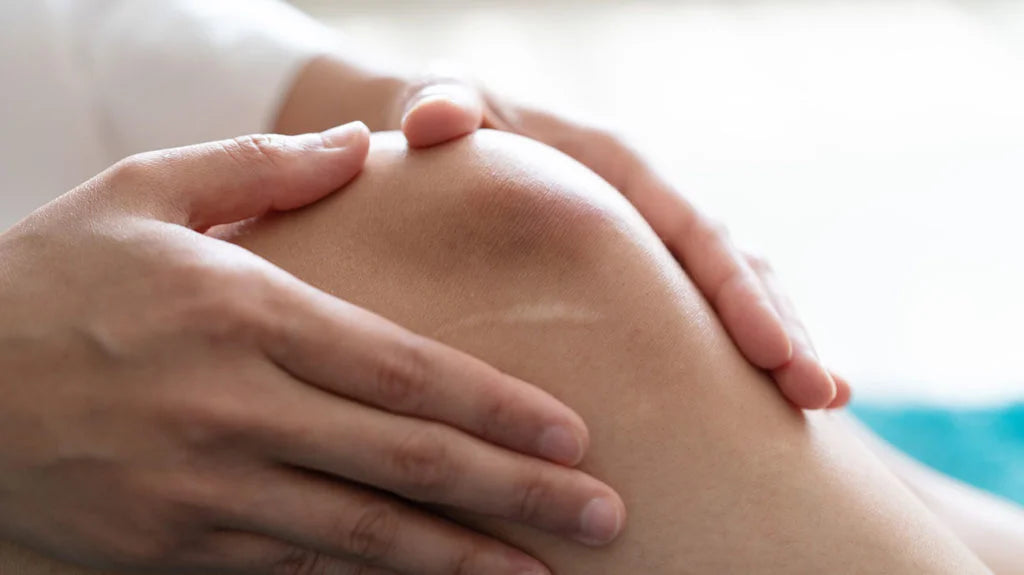How to Get Rid of Bruises: Tips and Tricks to Speed up Healing
Have you ever woken up with an unexpected bruise on your skin and wondered how it got there? Bruises are common and usually harmless, but they can be unsightly and uncomfortable. Luckily, there are several ways to speed up the healing process and get rid of bruises fast. In this article, we will discuss some effective tips and tricks to help you get rid of bruises quickly and safely.
What are bruises and what causes them?
Before we dive into the remedies, let's first understand what bruises are and what causes them. A bruise is a type of injury that occurs when tiny blood vessels under the skin break, causing blood to leak into nearby tissues. This results in a blue or purple mark on the skin, which can sometimes be painful or tender to the touch. Bruises can be caused by a variety of factors, such as:
- Trauma or injury to the skin (e.g., a bump, fall, or blow)
- Certain medical conditions (e.g., bleeding disorders or vitamin deficiencies)
- Medications that thin the blood (e.g., aspirin or warfarin)
- Aging, which can make the skin more fragile and prone to bruising
Now that we know the causes of bruises, let's move on to some effective remedies to get rid of them.
Home Remedies for Bruises
-
Ice packs: Applying an ice pack to the bruised area can help reduce swelling and pain. Wrap a bag of ice or frozen peas in a towel and apply it to the affected area for 10-15 minutes at a time, several times a day.
-
Arnica: Arnica is a natural remedy that has been used for centuries to treat bruises and other types of pain. You can apply arnica cream or ointment directly to the bruised area to help reduce swelling and inflammation.
-
Heat therapy: After the first 48 hours, applying a warm compress or taking a warm bath can help increase blood flow to the bruised area, which can speed up the healing process.
-
Vitamin K: Vitamin K is a nutrient that plays a role in blood clotting, which can help reduce the appearance of bruises. You can take vitamin K supplements or eat foods that are rich in vitamin K, such as leafy greens, broccoli, and soybeans.
-
Pineapple: Pineapple contains an enzyme called bromelain, which has anti-inflammatory properties that can help reduce swelling and bruising. Eating fresh pineapple or taking bromelain supplements may help speed up the healing process.
-
Comfrey: Comfrey is a plant that has been used for centuries to treat bruises and other types of injuries. You can apply comfrey cream or ointment to the bruised area to help reduce pain and inflammation.
-
Essential oils: Some essential oils, such as lavender, chamomile, and frankincense, have anti-inflammatory and pain-relieving properties that can help reduce swelling and discomfort. Dilute the essential oils with a carrier oil, such as coconut or jojoba oil, and apply the mixture to the bruised area.
Medical Treatments for Bruises
While home remedies can be effective in treating bruises, there are also some medical treatments that can help speed up the healing process, especially for severe or persistent bruises. These include:
-
Topical creams: There are several over-the-counter creams and ointments that contain ingredients like arnica, vitamin K, and bromelain, which can help reduce swelling and bruising.
-
Pain relievers: If the bruise is causing significant pain, your doctor may recommend taking pain relievers, such as acetaminophen or ibuprofen
-
Compression therapy: Applying pressure to the bruised area with a compression bandage or wrap can help reduce swelling and prevent further injury.
-
Surgery: In rare cases, surgery may be necessary to drain blood from the bruised area or repair damaged tissues.
Prevention Tips
While bruises can be difficult to completely prevent, there are some things you can do to minimize your risk of getting them. These include:
-
Wearing protective gear: If you engage in activities that put you at risk of injury, such as sports or manual labor, be sure to wear appropriate protective gear, such as helmets, knee pads, and gloves.
-
Eating a healthy diet: Eating a balanced diet that is rich in vitamins and minerals can help support healthy skin and blood vessels, which may reduce your risk of bruising.
-
Avoiding blood-thinning medications: If possible, avoid taking medications that thin the blood, such as aspirin or warfarin, as they can increase your risk of bruising.
-
Practicing good skin care: Keeping your skin moisturized and protected from the sun can help prevent damage that can lead to bruising.
Conclusion
Bruises may be a common and usually harmless injury, but they can be unsightly and uncomfortable. Thankfully, there are several effective remedies to help speed up the healing process and get rid of bruises fast. Home remedies such as ice packs, arnica, and heat therapy can be effective, as can medical treatments like topical creams and compression therapy. By following these tips and practicing good skin care, you can also help prevent bruises from occurring in the first place.
FAQs
- How long does it take for a bruise to heal?
Most bruises will heal within 2-4 weeks, depending on their severity.
- Are there any side effects to using home remedies for bruises?
While home remedies are generally safe, some people may be allergic to certain ingredients, such as arnica or essential oils. Always do a patch test before applying any new remedy to a large area.
- Can bruises be a sign of a more serious condition?
In some cases, frequent or unexplained bruising may be a sign of an underlying medical condition, such as a bleeding disorder or vitamin deficiency. If you experience frequent bruising, it's a good idea to see your doctor.
- Should I see a doctor if my bruise is severe or doesn't heal?
If your bruise is severe or doesn't seem to be healing properly, it's a good idea to see your doctor. They may recommend additional treatments, such as surgery or prescription medications.
- Can I exercise with a bruise?
While it's generally safe to exercise with a bruise, you should avoid activities that put pressure on the affected area, as this can worsen the injury. Instead, focus on low-impact exercises, such as swimming or walking.













